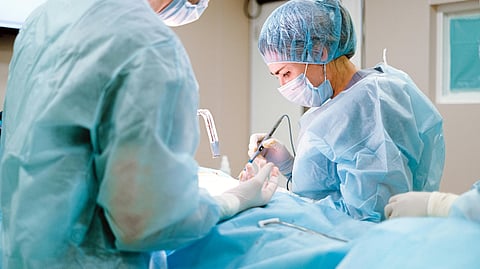Effects
Abnormal uterine bleeding leading to anemia (known as menorrhagia or hypomenorrhea)
Pelvic pressure (caused by enlargement of the uterus)
- Urinary incontinence or retention, or pain
- Difficulty with urination
- Urinary frequency
Infertility and miscarriage
Benign metastasizing
Malignancy [1]
Fibroids rarely arise before menarche and disappear after menopause, there is substantial evidence that estrogens and progestogens promote fibroid growth. While their exact cause is unknown, genetic modifications, lack of Vitamin D, lifestyle, and hormonal imbalances are believed to play a role. [2]
In this patient, having such a large number of fibroids is exceptionally rare! To prepare for the operation detailed imaging with MRI and 3D ultrasound was done by the doctors. Also, they boosted the patient’s blood count with iron supplements and kept extra blood reserves on standby. Highlighting the success of the surgery Mohit Singh, Zonal director of the hospital, praised the team's efforts.


